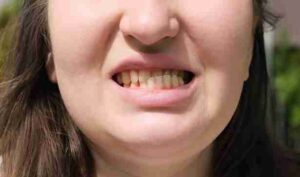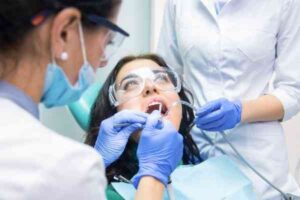Accidents can happen when you least expect them. A simple trip on the pavement, a slip down the stairs, or a fall while playing sports can result in a painful dental injury. Whether it’s a chipped, cracked, or completely knocked-out tooth, knowing what to do immediately after the incident can make a significant difference in saving the tooth and minimizing complications.
If you or someone you know has suffered a tooth injury in Luton, don’t panic. This blog will walk you through the immediate steps to take, when to seek professional help, and how to protect your oral health moving forward.
Types of Tooth Injuries You May Encounter
Dental injuries vary in severity, and understanding what kind of damage you’re dealing with helps guide your response. Common tooth injuries from a fall include:
1. Chipped or Fractured Tooth
A tooth may chip or crack upon impact. While a small chip might not cause pain, a deeper fracture can expose nerves, leading to discomfort and sensitivity.
2. Loosened Tooth (Subluxation)
This occurs when a tooth remains in the socket but has shifted or loosened. It’s often painful and should be assessed immediately.
3. Knocked-Out Tooth (Avulsion)
This is one of the most urgent dental emergencies. Time is crucial ideally, the tooth should be re-implanted within 30 to 60 minutes for the best chance of saving it.
4. Intruded Tooth
The tooth is pushed into the jawbone. This serious injury requires immediate dental attention to avoid permanent damage to the tooth and surrounding tissues.

Immediate Steps to Take After a Tooth Injury
1. Stay Calm and Assess the Damage
Before anything else, try to remain calm. Check the mouth for bleeding, swelling, or broken teeth. Look for any fragments of the tooth, as they may help your dentist during treatment.
2. Control Bleeding
If bleeding is present, use a clean cloth or gauze to apply gentle pressure to the area. If swelling occurs, apply a cold compress on the outside of the mouth or cheek.
3. Find and Preserve the Tooth (If Knocked Out)
If a tooth is completely knocked out:
- Handle it by the crown (top), not the root.
- Rinse it gently in water if dirty (don’t scrub or use soap).
- Try to reposition it into the socket if possible.
- If not, store it in a container with milk or a saline solution.
- Get to an emergency dentist in Luton as quickly as possible.
4. Avoid Using the Injured Side
Don’t chew or bite using the injured area. Soft foods and liquids are best until you’re seen by a dental professional.
5. Call a Dental Professional Immediately
The faster you receive professional care, the better your chances of saving the tooth and preventing infection or complications.
When to See an Emergency Dentist
You should seek immediate dental care if you experience:
- A knocked-out or severely loose tooth
- Bleeding that doesn’t stop after 10 minutes
- A visibly cracked or fractured tooth
- Severe pain or swelling in the gums or face
- Signs of infection (fever, pus, foul taste in the mouth)
Fortunately, help is available locally. An emergency dentist in Luton can provide same-day appointments for urgent dental care, helping to relieve pain and stabilize the injury before it worsens.
What to Expect During an Emergency Dental Visit
An emergency dental appointment is all about fast action and pain relief. Here’s what you can expect:
1. Initial Examination and X-Rays
Your dentist will evaluate the injury visually and through X-rays to determine the extent of the damage.
2. Pain Management
Pain relief may be administered immediately using local anesthetic or prescription medication.
3. Treatment Options
Depending on the injury, treatment may involve:
- Repositioning and splinting the tooth
- Root canal therapy for exposed nerves
- Replacing a lost tooth with a bridge or dental implant
- Cosmetic bonding for chipped teeth
Prompt intervention ensures better outcomes and helps avoid long-term complications such as infection or permanent tooth loss.
Why Follow-Up Hygiene Care Matters
Even after emergency treatment, your dental care journey isn’t over. Oral hygiene becomes even more critical during the healing process. Injured teeth and gums are more vulnerable to infection, plaque buildup, and gum disease.
Booking an appointment with a qualified Hygienist in Luton can help ensure your recovery stays on track. They provide professional cleanings, remove plaque or tartar buildup, and monitor your healing progress. This ongoing care significantly reduces your risk of secondary issues after trauma.
Home Care Tips After a Tooth Injury
After your emergency dental treatment, your dentist will give you instructions for care at home. These tips can help:
1. Rinse Gently
Use warm salt water to rinse your mouth a few times a day to reduce swelling and prevent infection.
2. Eat Soft Foods
Stick to soups, smoothies, scrambled eggs, or oatmeal. Avoid hard, crunchy, or sticky foods.
3. Take Prescribed Medication
Follow any prescriptions for antibiotics or pain relief exactly as instructed.
4. Avoid Smoking and Alcohol
These can delay healing and increase the risk of infection.
5. Monitor Your Tooth
Watch for signs of discoloration, increased sensitivity, or persistent pain all signs you may need further treatment.
Preventing Future Dental Injuries
While some falls are unavoidable, there are steps you can take to reduce the risk of tooth injuries:
- Wear a mouthguard when playing sports
- Keep your home clutter-free to avoid tripping
- Use stair railings and proper lighting
- Visit your dentist regularly to maintain strong, healthy teeth
If you’re prone to falls due to medical conditions or medications, speak with your GP or dentist about additional safety measures.
Children and Tooth Injuries Special Considerations
Children often fall during play or sports. If a baby tooth is knocked out, do not try to reinsert it it could damage the developing permanent tooth beneath. Still, you should visit a dentist to ensure no damage was done to the surrounding teeth or gums.
In contrast, a knocked-out permanent tooth in a child should be treated the same as in adults: attempt to reinsert it and seek emergency dental care immediately.
Importance of Prompt Dental Attention in Luton
Ignoring a dental injury can lead to:
- Tooth loss
- Infections that spread to other parts of the body
- Misaligned teeth
- Chronic jaw pain or TMJ disorders
- Aesthetic issues affecting self-confidence
Residents of Luton are fortunate to have access to urgent dental care and dental hygiene support in one place. Don’t hesitate to act quickly if you or your loved one experiences an injury.

Conclusion
Dental injuries from falls can be frightening, but immediate action can make all the difference. Whether it’s saving a knocked-out tooth or relieving intense pain, the right emergency care ensures you don’t suffer long-term consequences. After initial treatment, maintaining excellent oral hygiene is key to a smooth recovery and lasting oral health. If you’re in Luton and facing a dental emergency, seek help right away. And remember to schedule follow-up care with a trusted hygienist to support your healing process. For fast, professional, and compassionate dental support, trust EDA Group your reliable partner in emergency and preventative dental care.